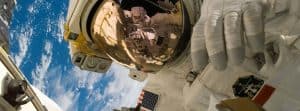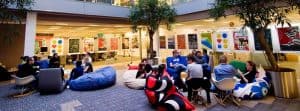The Lavin Agency Speakers Bureau
A speakers bureau that represents the best original thinkers,
writers, and doers for speaking engagements.
A speakers bureau that represents the best original thinkers,
writers, and doers for speaking engagements.
Technology has made our lives better in many ways—but embracing our analog experiences is the key to building a truly human world.
We’ve been told that the future is digital—but over the past few years, we’ve learned that our real, analog lives are what make us feel most connected, purposeful, and human. Bestselling author DAVID SAX argues that the key to thriving in our modern world is not accepting technology uncritically, but figuring out how to use digital tools to enhance our analog lives. Drawing on his new book The Future is Analog, David shows us how to build stronger relationships with customers, forge creative teams, make our workplaces more resilient, and “build a future with the human experience at the center.”
“Sax is great company, a writer of real and lasting charm.”— The New York Times
Award-winning author and business journalist David Sax argues that a digital future can augment our real, analog lives, but it can never truly replace them. The analog aspects of real life are so valuable—in the office, on campus, and in society—and David can show you how to build around them to innovate without losing sight of the human experiences that really matter. He presents a vision of the future where technology serves humans first and foremost, and where we can reject the downsides of technology while still embracing change. In funny, engaging talks, David draws on his new book The Future Is Analog—which Kirkus called “approachable” and “witty”—to make the case for taking hold of the best parts of our digital and analog worlds, so that we can build a future where technology frees us to be human.
In his #1 Washington Post bestseller The Revenge of Analog, David explores the cultural shift that occurred when digital upended every industry—and enabled a comeback for analog in the process. With common sense and uncommon charm, he’s a chief chronicler of this resounding shift both on stage and in this acclaimed book, named one of the best of the year by The New York Times’ Chief Book Critic, Michiko Kakutani. Retailers and tech giants the world over are fusing digital with analog to boost creativity and outsmart the competition—and David has his finger on the pulse of what this means for the future of innovation. In a starred review, Booklist called The Revenge of Analog “essential reading,” saying that David “thoughtfully, wisely, and honestly points out how analog experiences enhance digital creativity and how humans benefit from what both have to offer.”
The Soul of an Entrepreneur, David shows that becoming a successful entrepreneur doesn’t mean you have to be the next Steve Jobs or Elon Musk. Instead, he tells the real stories of everyday entrepreneurs —the local barbers, restaurants, family-owned factories, and businesses small and large that hold our communities and economies together. He reveals how we can ensure entrepreneurship is open and accessible to all—restoring the essential promise of our economy that anyone can be an entrepreneur. In his talks, he offers lessons and stories from a diverse group of entrepreneurs to teach us how we can build the emotional and spiritual resilience needed to withstand crisis.
A sophisticated analyst of major trends for consumers—and wider culture—David is also the author of two other fascinating accounts of pop culture and business. In The Tastemakers: Why We’re Crazy for Cupcakes But Fed Up with Fondue, he argues that food trends are not only a collection of photos on Instagram—they have an everlasting effect on our culture, workforce, economy, health, and day-to-day lives. The New York Times calls it “a romp” through the food industry that will “leave readers wondering about how susceptible we are to the charms of any new food.” His first book, Save the Deli: In Search of Perfect Pastrami, Crusty Rye, and the Heart of Jewish Delicatessen, won the James Beard Award for Writing and Literature.
David won the National Magazine Award for his Toronto Life profile on a Jewish entrepreneur running a Chinese food mini-empire. His other writing appears regularly in The New York Times, Bloomberg Businessweek, The New Yorker’s business blog, and LA Times, and he is a regular feature on CBC Radio and NPR.
David delivered a great virtual session yesterday! It was the perfect fit for Small Business Week and certainly matched the passion that we see demonstrated by our tourism partners.
Travel AlbertaCEO of Trend Hunter New York Times bestselling author of Create the Future
Host of The Rick Mercer Report for 15 years Bestselling Author of Talking to Canadians and Rick Mercer Final Report Winner of the Stephen Leacock Medal for Humour
One of the world's top public intellectuals Author of Rationality, Enlightenment Now, and When Everyone Knows That Everyone Knows . . . Harvard Professor

#1 New York Times Bestselling Author of Grit and Situated | Pioneering Researcher on Grit, Perseverance, and the Science of Success

Nobel Prize Winner | 3rd Most Cited Economist in the World | Bestselling Co-Author of Why Nations Fail and Power and Progress

Harvard Business School Behavioral Science Professor | "40 Under 40 MBA Professor" | Author of TALK: The Science of Conversation and the Art of Being Ourselves

#1 New York Times Bestselling Co-Author of Abundance | Host of thePlain English Podcast | CBS News Contributor

#1 New York Times Bestselling Author of How the Word Is Passed and Above Ground | The Atlantic Staff Writer

We’ve been told that the future is digital. But living in a digital world for the past few years has us all craving real, analog experiences again. How do we reject the downsides of technology while still embracing change? Drawing on his new book The Future is Analog, bestselling author David Sax argues that we can take hold of the best parts of our digital and analog worlds, and build a future where technology frees us to be human.
We can build around a core analog experience to add value to our relationships and businesses. For example, we can leverage embodied cognition—the way physical spaces provide enormous information that is lost in digital spaces—to brainstorm and innovate in radical ways. Whether you’re looking to build stronger relationships with customers, forge creative teams, or make your workplace more resilient and meaningful, David will show you how to design and innovate without losing sight of the human experiences that really matter.

Why are customers so unhappy with their experiences lately? Organizations have optimized for efficiency and doubled down on digital strategy. They’ve continued to invest in big data and are now plunging head-first into AI with the rise of chat bots. Trend analyst and bestselling author David Sax says that when organizations turned their attention online, they lost touch of something vital: where customers actually live. Call it connection, relationships, or tactile experience, but organizations need to re-humanize their operations. To have your company thrive, you need to dethrone the numbers, invest in approaches that resonate with the target customer, and most importantly, strike a balance between technology and human relationships.
In this lively, eye-opening, and accessible workshop, David will lead teams to examine their own relationships and experiences with customer service in the real world. He’ll direct you through what ‘humanizing’ actually means, then work with you to identify opportunities that elevate the human-centered experience in your own operations. For any organization that wants to innovate their customer service experience for greater success, David’s talk will ensure that you have the blueprint to build a company-customer relationship that lasts.


In today’s interconnected world, food trends are popping up quicker, growing bigger, and having a greater impact on more of what we eat than ever before. In this talk, David Sax explores where these trends come from, how they grow, and what impact they have: on marketing, business, and the consumer. In doing so, he helps us not only understand why some foods become popular while others don’t, but he reveals how the power of consumer behaviour takes it way beyond just what we eat.
From the cronut craze to the impact of social media on food to world-changing trends (third-wave coffee, anyone?), Sax opens our eyes to the economic and cultural impact of what’s on our plate and in our pantry.